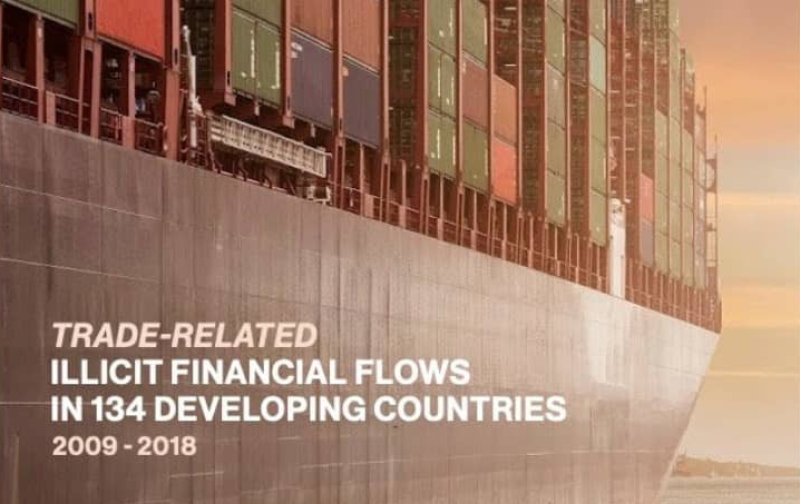Ho, Dec 22, GNA-A new report published by the Global Financial Integrity (GFI) has estimated US$1.6 trillion in potential trade mis-invoicing among 134 developing countries, including Ghana between 2009-2018.


It indicated US$835 billion in such transactions occurred between developing countries and 36 advanced economies in 2018.
The report, Trade-Related Illicit Financial Flows in 134 Developing Countries 2009-2018, shows trade mis-invoicing is a persistent problem across developing nations, resulting in potentially massive revenue losses and facilitating illicit financial flows across international borders.
According to a release copied to the Ghana News Agency, trade mis-invoicing occurs, when importers and exporters deliberately falsify the declared value of goods on invoices submitted to customs authorities.
This allows traders to illegally move money across international borders, evade tax and/or customs duties, launder the proceeds of criminal activity, circumvent currency controls and hide profits in offshore bank accounts.
Value gaps or mismatches, it said, in international trade transactions, indicate that developing countries are not collecting the correct amount of trade-related taxes and duties that are owed, leading to potentially massive amounts of revenue losses.
It said while these value gaps are only estimates of mis-invoicing, they indicate the scale of the problem.
To identify potential trade mis-invoicing, GFI examined official trade data reported to the United Nations to identify value gaps, or mismatches, in the data regarding what any two countries reported about their trade with one another.
There are reasons for some mismatches to regularly show up in the international trade data, GFI believes that the majority of the gaps identified are indicative of trade mis-invoicing activity.
GFI looked at all bilateral trade data for 134 developing countries, as well as trade between those countries and 36 advanced economies.
The sum of the value gaps identified in trade between the entities and trading partners in 2018, the most recent year for which comprehensive data are available shows China contributing – US$305.0 billion, Poland – US$62.3 billion, India – US$38.9 billion, Russia – US$32.6 billion and Malaysia – US$30.7 billion.
Developing countries with the five largest value gaps identified in US Dollars in the bilateral trade between 134 developing countries and 36 advanced economies in 2018 with The Gambia contributing – 45.0%, Malawi – 36.6%, Suriname – 31.9%, Kyrgyzstan – 30.6% and Belize – 29.2%
Developing countries with the top-five largest value gaps identified as a per cent of total trade in the bilateral trade between 134 developing countries and 36 advanced economies in 2018 include Developing Asia – US$388.6 billion, Developing Europe – US$158.6 billion, Western Hemisphere – US$97.4 billion, Middle East & North Africa – US$58.6 billion and Sub-Saharan Africa – US$25.2 billion.
The average value gaps identified in US Dollars within the bilateral trade between five developing country regions and the set of 36 advanced economies between 2009 and 2018.
It recommended at the national level that countries should make trade mis-invoicing illegal, strengthen law enforcement capacities of customs authorities, establish multi-agency teams to address customs fraud, tax evasion and other financial crimes.
Others include implementing readily available trade mis-invoicing risk assessment tools, strengthening customs oversight of Free Trade Zones (FTZs) and establishing National Trade Facilitation Committees.
It said Internationally countries should work together to expand information-sharing between importing and exporting countries and explore the use of distributed ledger technology to identify trade mis-invoicing.
GFI hopes this analysis will help developing countries understand the magnitude of trade mis-invoicing activity and the potentially massive revenue losses they are incurring due to uncollected taxes and duties.
Taking concrete steps to reduce trade mis-invoicing is necessary to address the broader problem of illicit financial flows across international borders.